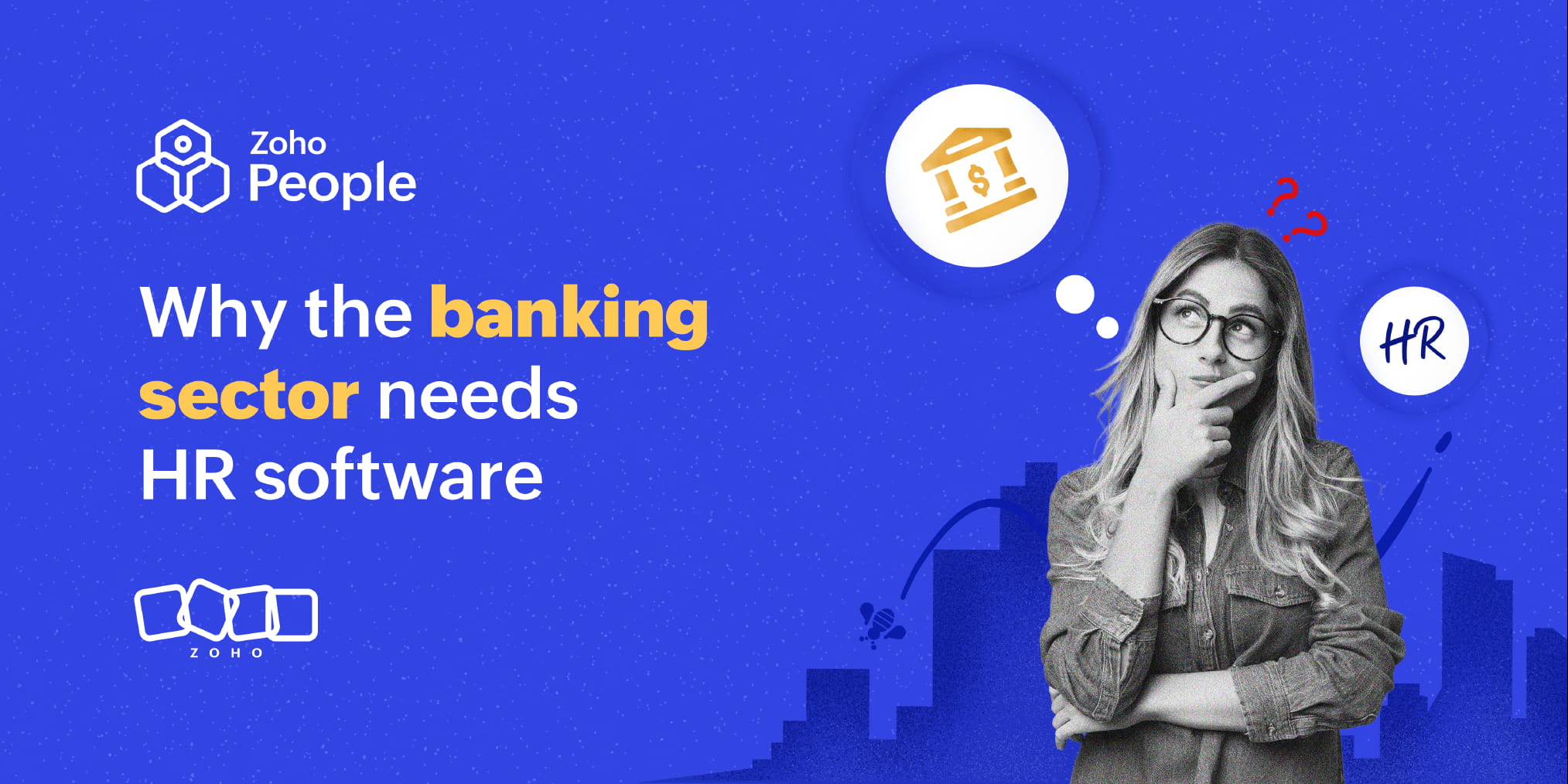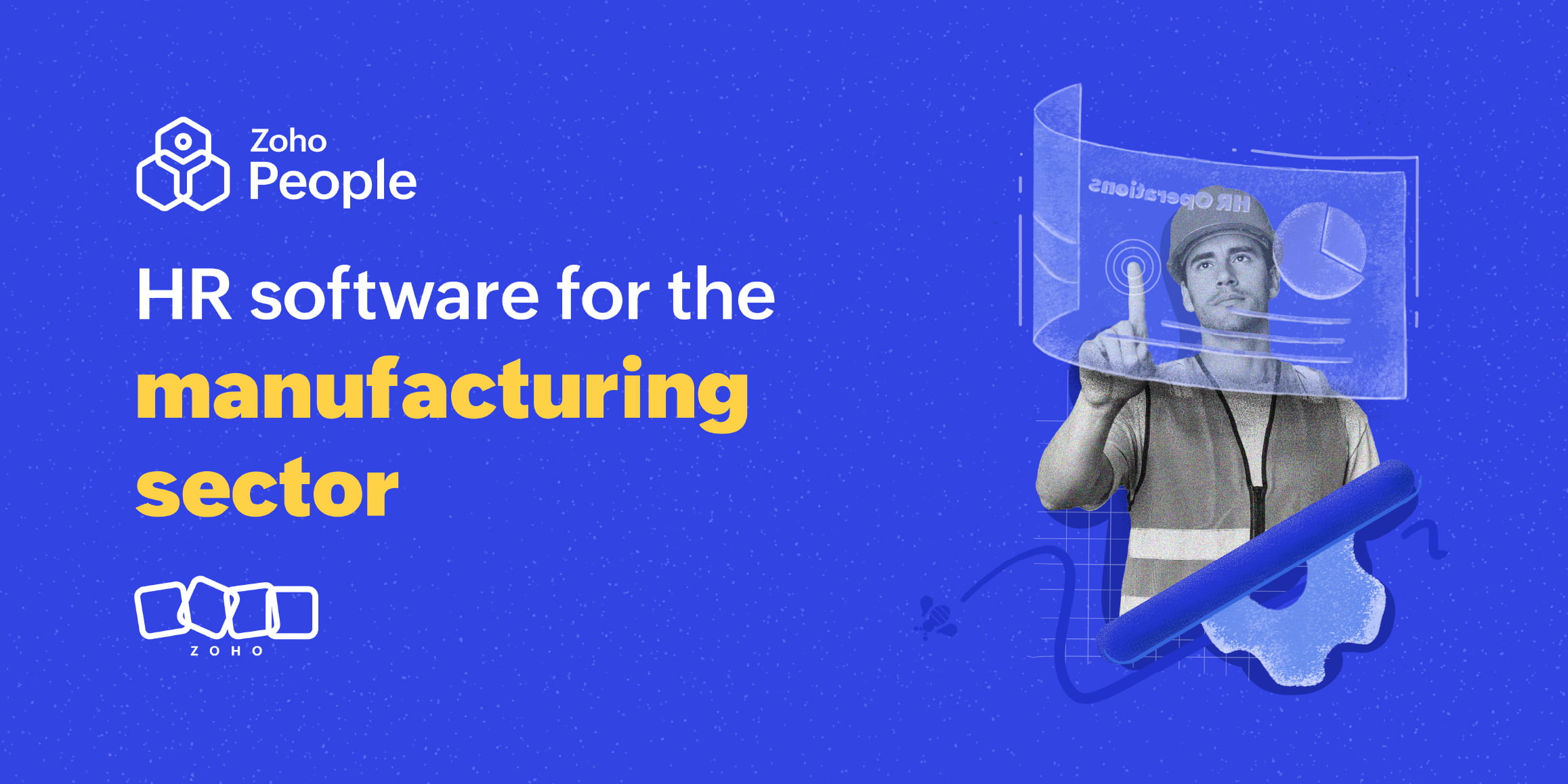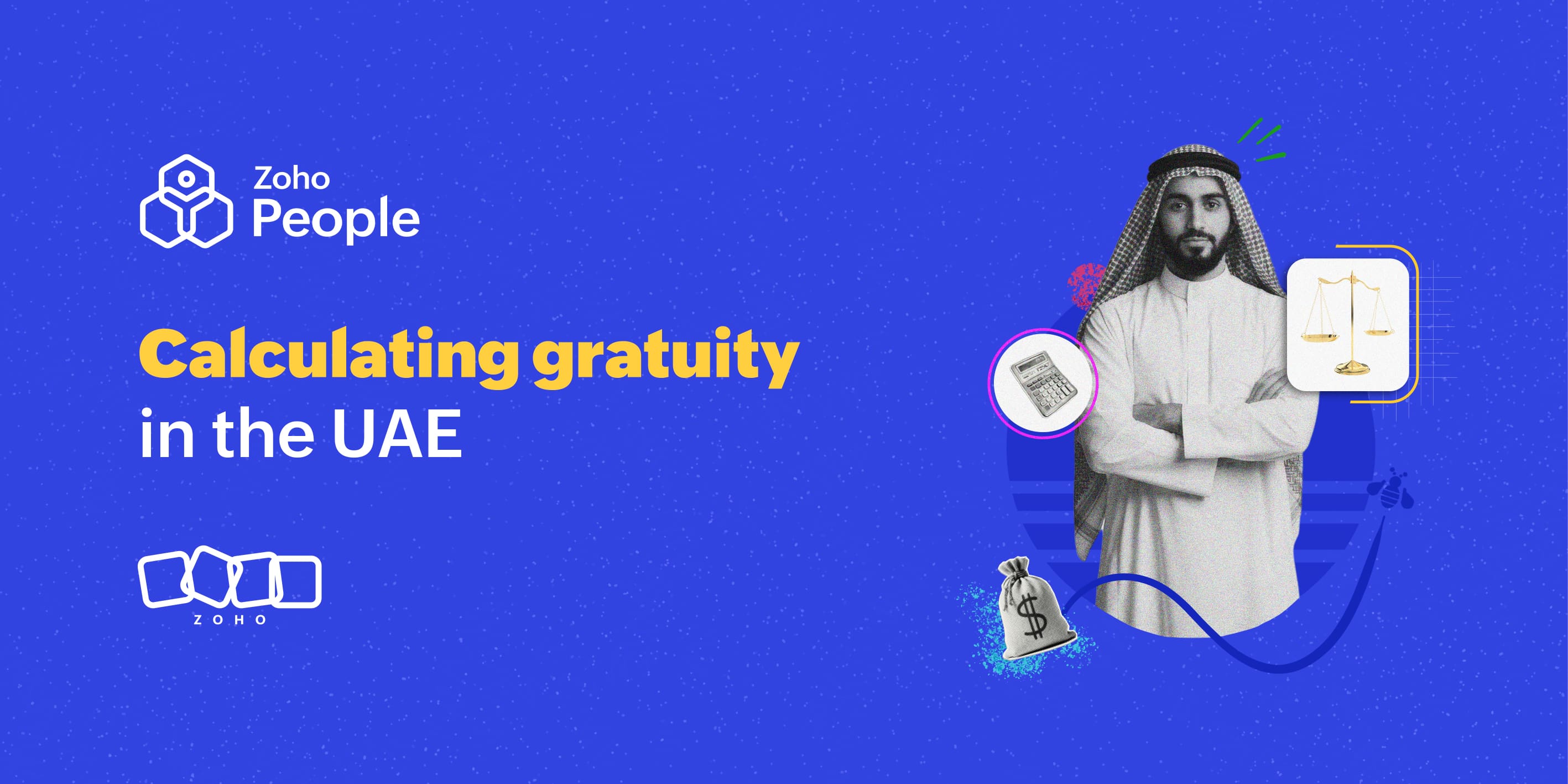- HOME
- HR insights
- The evolution of employee expectations and how HR teams managed the change
The evolution of employee expectations and how HR teams managed the change
- Last Updated : October 4, 2024
- 960 Views
- 4 Min Read
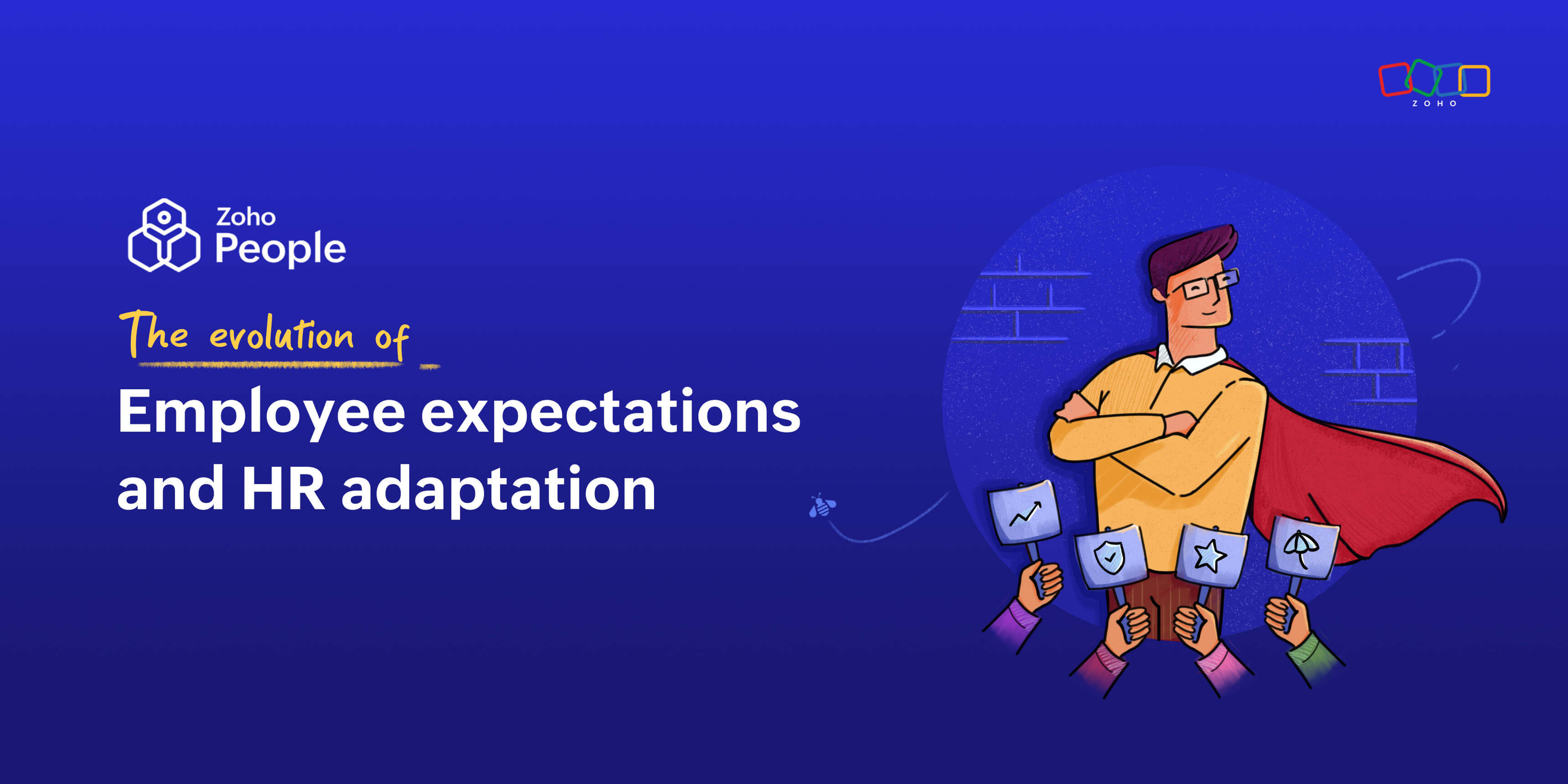
Before policies were implemented, organizations faced various challenges. They were stuck in a monotonous routine and unclear goals. Employees worked long hours that led to stress, anxiety, and burnout. Work-life balance involved leaving the office at reasonable hours, but, after a long day, employees still ended up exhausted. These expectations led to an evolution.
Policies emerged from these drastic changes in employee expectations. This change in mindset reshaped HR practices, a larger focus on aspects such as work-life balance and career development. As employee expectations continue to evolve, organizations are innovating and adapting to these new demands.
Prioritizing work-life balance
Earlier work-life balance was all about leaving the office at a reasonable hour, having a free weekend to rest, and spending some quality time with friends and family. Today, it encompasses a broader range of ideas, including mental health, flexible work culture, paid time off (PTO), and remote work options. Employees now view work-life balance as an essential part of their well-being, and they expect their employers' support.
The emergence of work from home policies has had a significant effect on employees' expectations post COVID. Even though the concept of remote work has been around for decades, it has evolved significantly over the past few years. According to Forbes, 98% of employees want to work at least partially remote. The pandemic increased remote work possibilities, and what was initially a temporary solution has now become a permanent fixture for some industries.
In response to evolving expectations, HR departments have undergone drastic changes in their conventional approaches. No more standardized, off-the-rack policies for everyone—HR representatives have adopted flexible and individualized approaches to suit modern employees.
Personal and professional growth
In the past, it was easier to deal with career growth. Careers existed in a hierarchy, and advancement was tied to fulfilling an assigned role. Today, career growth is expected to be dynamic and unique. Employees look for a seamless learning environment so they can evolve new skills, complete varied tasks, and have more control over their careers.
HR departments responded to these new demands with learning and development programs. These programs not only support upskilling but foster an environment that encourages innovation and creativity. For instance, most organizations have realized the utility of mentorship programs, job rotation, and online learning platforms as avenues to encourage employees to develop their skill sets.
Continuous feedback and performance appraisals directed toward development are also becoming the norm, replacing traditional annual performance reviews. HR's involvement in promoting career growth has increased employee engagement and created a culture of value and support during their professional journey.
Promoting mental health awareness
Another major change in employee expectations is an emphasis on psychological well-being. While employee health initiatives once only involved gym memberships and basic healthcare coverage, the modern workforce wants employers to do much more than that. In order to maintain their workers' mental health—which includes access to counseling services, stress management programs, and mental health days—modern employees expect psychological wellness initiatives, as well. An understanding of mental health is growing in the post-pandemic world as employees realize that working impacts their mental and emotional states.
In recent years, HR teams have become more invested in mental health, working on ideas that contribute toward making the workplace less stressful. Some initiatives include employee assistance programs (EAPs), flexible working hours, and PTO policies aimed at reducing stress among employees.
Use of technology
Implementing new technology promotes the transition toward a new work environment. With the popularity of remote options, project management software, video conferencing apps, and collaboration platforms, it's easier than ever to stay productive from anywhere. The HR department ensures that this infrastructure is available, training employees as needed.
Diversity, equity, and inclusion (DEI)
Modern employees expect workplaces to reflect the world they live in. It's no longer a matter of recruiting a diverse workforce but rather of building an inclusive culture where all feel valued and empowered across their differences. According to a survey conducted by Glassdoor, 76% of employees and job seekers report that a diverse workforce is an important factor when choosing an organization for employment.
Today, DEI policies stand at the core of many HR departments' efforts. Employees seek organizations that encourage inclusive cultures and equality, and HR departments have a responsibility to create and enforce policies that meet these desires.
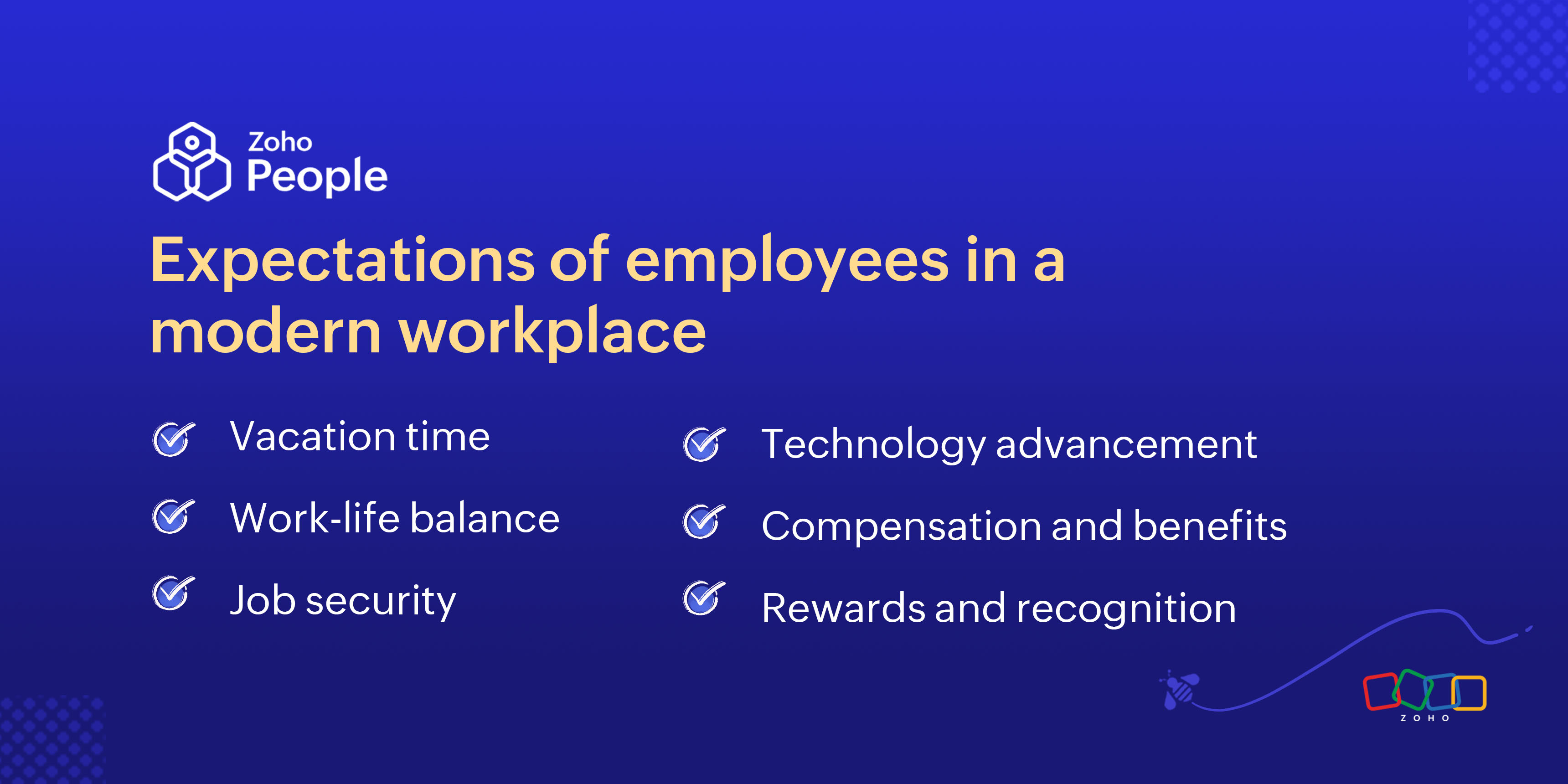
How HR representatives manage adaptability
When HR representatives first began managing their employees' evolving expectations, they faced significant challenges. Initially, policies were rigid and often reactive, focusing on compliance rather than proactively addressing employee well-being or professional growth.
For instance, work-life balance was defined by working hours, career development was all about promotions within the hierarchy, and mental health awareness didn't even exist. Technology merely optimized processes rather than encouraged remote work or collaboration. As these expectations shifted, HR teams implemented flexible policies and fostered open dialogue, encouraging continuous learning. This required HR departments to not only develop new programs but also train managers to adopt a more employee-centric approach.
There are various HR software solutions on the market to ensure organizations can adapt to their employees' evolving needs; among them, Zoho People is helping HR professionals streamline processes and manage employee expectations, ensuring a smooth transition when implementing policies.
| Try Zoho People |
Wrapping up
As employees’ needs have changed over time, HR has worked hard to meet these new expectations. What started as small changes have now become a complete shift in how companies think about their workers. HR teams no longer just manage paperwork; they help create workplaces that focus on flexibility, career growth, mental health, and diversity.
